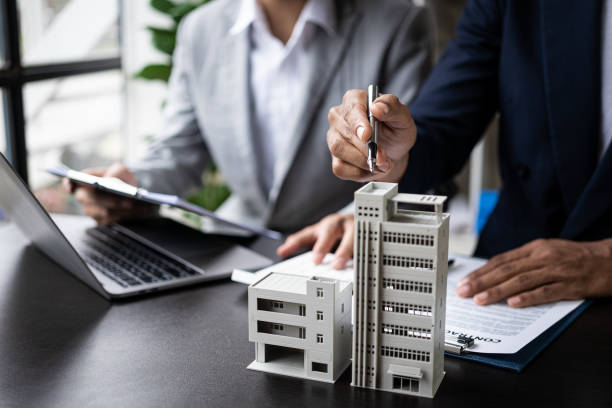
Getting Around the Property Market: An Overview for Purchasers
he real estate market can be a complex landscape, especially for new buyers. This comprehensive guide will provide you with essential information to make informed decisions and find the perfect property.
Understanding the Market
Before diving into the market, research current trends, property values, and future projections. A local real estate agent can offer valuable insights and help you identify suitable properties based on your needs and budget.
Key Factors Influencing Prices
Location: Desirable areas typically have higher property values.
Demand: High demand can drive up prices, especially in competitive markets.
New Development: Increased inventory from new construction can stabilize prices.
Economic Factors: The overall economy influences the real estate market.
Setting a Budget
Determine your budget before starting your search. Consider factors such as mortgage payments, property taxes, insurance, and potential maintenance costs.
Financial Planning
Pre-Approval: Get pre-approved for a mortgage to demonstrate to sellers that you’re a serious buyer and understand your budget.
Down Payment: Save for a down payment, which typically ranges from 5% to 20% of the property’s purchase price.
Closing Costs: Be prepared for closing costs, including fees for appraisal, title insurance, and legal services.
Choosing the Right Property
Consider your lifestyle, desired amenities, and commuting needs when selecting a property. Research different neighborhoods to find the perfect fit.
Property Types
Single-Family Homes: Offer privacy and space.
Condominiums: Provide amenities and security, but may have HOA fees.
Townhouses: Combine features of single-family homes and condos.
Due Diligence
Conduct thorough inspections, review property history, and research local zoning laws and regulations.
Inspection Checklist
Structural integrity: Check for foundation cracks, roof leaks, and plumbing issues.
Electrical systems: Ensure wiring is up-to-date and safe.
HVAC systems: Inspect heating and cooling systems for efficiency and functionality.
Pest control: Verify that the property is free of pests.
Negotiating the Offer
Negotiate the price and terms of the sale with the seller. Consider factors like market conditions, property value, and your budget.
Negotiation Tips
Be prepared: Research comparable properties to determine a fair offer price.
Be flexible: Be open to compromise and negotiation.
Consider contingencies: Include contingencies in your offer to protect your interests.
Closing the Deal
Once the offer is accepted, prepare for the closing process. This includes finalizing the mortgage, conducting a final walkthrough, and signing necessary documents.
Closing Costs
Title insurance: Protects your ownership rights.
Transfer taxes: Fees paid to the government.
Attorney fees: Legal costs associated with the transaction.
Additional Considerations
HOA Fees: If you’re considering a condo or townhouse, be aware of HOA fees and rules.
Property Taxes: Research property tax rates in the area.
Insurance: Obtain homeowners insurance to protect your investment.
Conclusion
Buying a property requires careful planning and research. By understanding the market, setting a budget, and working with a knowledgeable agent, you can find the perfect home or investment property. Remember, the real estate market can be dynamic, so stay informed and be prepared to adapt to changing conditions.
